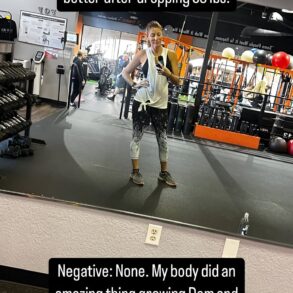When Boston held its nonpartisan preliminary municipal election back in September, the at-large council race didn’t feature at all. That’s because, with eight candidates seeking four available seats. there simply weren’t enough contenders to force an initial round of voting. (Preliminary contests are held when there are twice as many aspirants, plus one, as there are available spots.) Instead, the drama focused on district contests in which two embattled incumbents — Ricardo Arroyo and Kendra Lara — ultimately failed to keep their jobs.
In the final election, though — in which early voting is already underway, and which will bring voters to the polls this coming Tuesday — the at-large contest is going to be a major story. Because they represent the entire city, and court voters from every corner of Boston in order to get their jobs, at-large councilors boast a measure of political muscle that their district-councilor peers don’t. And topping the ticket — getting the most votes of the entire at-large field — suggests an even greater degree of clout. It also tends to both augur and pave the way for bigger things to come: in 2019, for example, the at-large field was topped by now-Mayor Michelle Wu, and in 2017 now-Rep. Ayanna Pressley finished first. Adding to the intrigue this year: longtime incumbent Michael Flaherty, who ran for mayor in 2009 and topped the ticket in 2021, is stepping down, meaning one of the four available slots will be filled by a newcomer.
This year’s crop of at-large contenders run the gamut from longtime, well-financed incumbents to outsiders with limited resources and dimmer prospects — two of whom are known for their aggressive opposition to the vaccine mandates imposed during the pandemic. GBH News asked all of them to weigh in on key issues facing the city, from the ongoing crisis at Mass. and Cass to the dismaying dysfunction that’s plagued the City Council in recent months. Their answers follow — and will, hopefully, help Boston voters who haven’t already cast their ballots early decide who’ll get their four at-large votes.
The candidates’ order in their responses was determined by a random generator. Where their answers were longer than 100 words, we shortened them and linked to the candidate’s full emailed response. Incumbents are marked with an asterisk (*).
Two of the eight candidates, Bridget Nee-Walsh and Catherine Vitale, did not respond at the time of publication.
What letter grade would you give Mayor Michelle Wu at this point in her tenure?
Ruthzee Louijeune*: B+. She became mayor at a very difficult time for the city and has brought many of her bold ideas to fruition. When it comes to housing justice, climate justice and uplifting our small businesses, she has worked hard to move the city forward. As a city, we still are experiencing a lot of deeply entrenched issues which are difficult to resolve. Read Louijeune’s full answer here.
Erin Murphy*: As someone who taught in the Boston Public Schools, I had a reputation as a fairly easy grader. But I taught kindergarten, and I think the mayor of the greatest city in the world should be held to a higher standard. Mayor Wu gets an “incomplete” from me because I think she still has a lot of work left to do, but I’m hopeful she’ll finish with an “A.” That would be good for everyone.
Shawn Nelson: I would give her an F.
Clifton Braithewaite: B-.
Julia Mejia*: C. She has pushed the needle forward in many ways which she deserves credit for but when it comes to community engagement and voice, there’s still room for improvement.
Henry Santana: A-
Mayor Wu has worked to deliver bold change for Boston residents and families across our city’s neighborhoods. The City is doing all it can to address our housing, climate and transit crises yet there is still an urgent need to do more. I’m proud of being endorsed by Mayor Wu and look forward to working closely with her to tackle the big challenges ahead and address current gaps in the City’s efforts to make Boston the best city to live across generations. Read Santana’s full answer here.
What’s the best thing the council did this term, and what’s the biggest mistake it made?
Ruthzee Louijeune*: The Council’s biggest accomplishment was our efforts to utilize ARPA funding to make historic, transformative, equitable investments in our community. We allocated funding to advance affordable housing and homeownership opportunities, to support our small businesses as we came out of the pandemic, and to invest in early education.
The biggest challenge that our Council faced was neglecting to build collegiality as we should have so that the city could have a more productive Council.
Erin Murphy*: Perhaps I’m biased because it’s an issue near and dear to my heart, and was the first home rule petition I filed upon taking office, but we increased access to voting for our men and women in uniform who are unable to go to their home polling places.
The biggest mistake was no single policy decision, but that the actions of some of my colleagues – on a whole range of issues, including personal behavior – have eroded the public’s trust in us. I’m hopeful that we can earn that back, but by no means do I think it’ll be easy. Read Murphy’s full answer here.
Shawn Nelson: The biggest mistake they made was infringing on the first amendment right to protest. Trying to put a time limit and place where it can be present.
Clifton Braithewaite: Community choice Energy and not working together as a body.
Julia Mejia*: I am most proud of how we manuvered the budget process this year with everything simultaneously going on. There were a lot of competing perspectives and different voices in and out of the room but as a City Council, we got the city through it and we were able to pass legislation and the annual city budget while trying to establish the infrastructure for the newly created participatory budget process.
The biggest mistake was not addressing the strained relationships of the City Council post the August 31st meeting. Read Mejia’s full answer here.
Henry Santana: The City Council played a strong role in advocating for increased investments for the City’s summer youth jobs program – a foundational program for our young people and families that connects them to opportunity and empowers them to grow and reach their full potential. All residents should feel and be safe in their neighborhoods and we need City Councilors who will roll up their sleeves and work closely across government and community to address public safety beyond hearings. Read Santana’s full answer here.
What’s the first piece of legislation you’d file next term?
Ruthzee Louijeune*: During my first term, I prioritized housing. I would continue that work at the beginning of a new term. I am eager to leverage city-owned land to elevate investments in affordable housing and homeownership. I would hold a hearing so that the public can be made aware of the opportunities and city investments, and deepening relationships with community land trusts and non-profit developers to invest in housing that prevents displacement.
Erin Murphy*: As a longtime special education ESL teacher, I want to continue advocating for our ESL and special ed students, whom we have historically not adequately prepared, particularly with regards to reading resources. Time and again, the Boston Public Schools have underserved special ed ESL students, and it shows up in the test scores and in long-term outcomes. So I’ll be filing legislation focused on increased access to reading resources and increased investment in universal pre-K. This is about closing achievement gaps, addressing historical inequities, and opening a brighter future for Boston’s children and families.
Shawn Nelson: Amending the sanctuary city law in Boston.
Clifton Braithewaite: Re investing in our public schools.
Julia Mejia*: If and when re-elected, I would rather lead with convening rather than on legislating. I’ve learned that we need to do a better job at bringing people together to ensure that we continue centering the needs of the people first. It is from there that we can enact meaningful legislation and so that is where I want to place my focus entering term 3.
Henry Santana: Public housing provided my family and I the opportunity to stay in Boston, build here and thrive. Every Bostonian deserves that opportunity and deserves to live in safe, healthy and green buildings. My first priority as a City Councilor At-Large will be to focus on exploring ways to best support the City in adding to our public housing stock while ensuring that we are making investments to boost housing affordability across neighborhoods and building true pathways to homeownership.
Do you support building a new recovery campus at the edge of Franklin Park?
Ruthzee Louijeune*: Addressing the disease of addiction and supporting those with mental health challenges requires an all hands-on-deck approach. This problem is not specific to one neighborhood and we all have a responsibility when it comes to supporting our neighbors in recovery. There is a lot of work that needs to be done on the proposal to make it feasible and equitable for our city. We also need the state to be more hands-on to find solutions to this crisis in areas not concentrated in Boston.
Erin Murphy*: I am not currently supportive of the proposal because I don’t believe that community concerns about safety have been addressed, and I think key questions remain unanswered – many of them dealing with the sizable estimate of the influx of people and how that influx would fit within the community fabric as it exists now.
I’ve long advocated for more community input into similar proposals elsewhere in the city, and I will continue to do the same thing regarding the proposal at the Shattuck. Boston does need more recovery beds across the city. But we need to ensure that they are sited and scaled in appropriate locations and – just as importantly – with appropriate community input. Read Murphy’s full answer here.
Shawn Nelson: No, the residents by Franklin park oppose the idea.
Clifton Braithewaite: No.
Julia Mejia*: Yes, I do support the building of a new recovery campus at the edge of Franklin Park.
I think for our office, I want to continue to lean into the conversation and find ways to convene folks from the neighborhood, health care space, planning and development space, and work to ensure collective input and decision-making for all those who will be impacted.
Overall, I think the increased units and emergency beds are crucial and incredibly needed and will support more residents here in the City of Boston as we continue to find ways to alleviate the current health and housing crisis.
Henry Santana: There is a clear, urgent need here in Boston and across Massachusetts for more safe, stable housing that is connected to critical treatment services and recovery supports. I am supportive of a new campus that has programming to address gaps in this crisis, however there needs to be a more deliberate effort to ensure that Boston is not being overburdened by a statewide issue, especially our Black and Brown communities in the city. I look forward to working with local residents, organizations and all stakeholders to ensure that the site is best used and aligned with community needs.
Is there anything the city should be doing differently to address the intersecting crises at Mass. and Cass?
Ruthzee Louijeune*: We must build stronger partnership with the state so there are more treatment beds and longer treatment stays as Dr. Ojikutu recommended. It is critical that we deploy a housing and treatment model simultaneously, as well as getting Long Island operational as soon as possible.
Erin Murphy*: I voted in favor of Mayor Wu’s ordinance last week to remove the tents at Mass and Cass, but there’s hard work still ahead of us to ensure that all city departments are held accountable for their promises. It’s not just shelter beds that are needed; we have to ensure more recovery services and long-term treatment. The project on Long Island – a new facility and all the promises that came with it – could be a long way off, but the need is now, and it’s urgent. So all of the promises that were made about Long Island, those services should be delivered now because the need is now, and we could be doing things today. Read Murphy’s full answer here.
Shawn Nelson: Using existing laws on the books, like section 51 & vagrancy laws with rehabilitation care.
Clifton Braithewaite: The governor should make a state of emergency. And use some of the closed military bases.
Julia Mejia*: I think that as a city we need to be doing more to support the people on Mass and Cass. I have consistently advocated for more conversations around ways to engage the community and health care porviders in this conversation and will continue to do so if re-elected for a third term. The problem is that we’re not looking at the root causes and so I want to continue this dialogue with my City Council colleagues and the Administration.
Henry Santana: The ordinance recently adopted by the City is an immediate step towards making sure that everyone is safe and healthy and that critical workers across city agencies and partners who are supporting every day in the area are able to stay safe while connecting people with housing and delivering services. We need to continue to work with urgency and care to address this crisis holistically, along with our partners at the State level, so that everyone can live in safe, healthy conditions especially as we get closer to the colder months. Read Santana’s full answer here.
Do you support plans to move the John D. O’Bryant to West Roxbury?
Ruthzee Louijeune*: In order for this to be a viable plan, we need to have more conversations with community members. I am encouraged by the idea that Madison Park and the O’Bryant would both be getting their own campus, although we need to think about the deep transportation challenges that will present themselves with the move of OB. I am a proponent for more citywide schools and bringing students across our communities together. Read Louijeune’s full answer here.
Erin Murphy*: I share the concerns of some of my Council colleagues and O’Bryant teachers, students and families with both the decision-making process behind the plan to relocate the John D. O’Bryant School of Mathematics and Science and, more importantly, the significant hurdle the plan poses to an improved education environment for our students.
After the plan was announced, in early June, I said then that the city and Boston Public Schools system “have plenty of buildings and sites to choose from that would not radically disrupt the O’Bryant’s long standing connections to the neighborhoods, families, and businesses that make it thrive.” Read Murphy’s full answer here.
Shawn Nelson: No, the resident of Boston have opposed the plan.
Clifton Braithewaite: No.
Julia Mejia*: No, I don’t support moving John D. O’Bryant to West Roxbury. The concern is now, if they move to West Roxbury, the diversity may be watered down. To me, it feels like school gentrification and displacement.
Henry Santana: Boston’s young people and families deserve transformative, state of the art schools with high quality education in every neighborhood. I’m excited to see the John D. O’Bryant get the attention it deserves and that at the same time revitalizing Madison Park is on the front of mind for so many students, families and residents. As this process continues, I look forward to seeing the community input surrounding this plan continue to develop and that feedback is incorporated into any final proposal considered.
Was the council’s approval of $3.4 million in grant funding for the Boston Regional Intelligence Center the right move?
Ruthzee Louijeune*: It was not the right move. As a Council, we didn’t have enough information and only received answers to questions ninety minutes before the vote. There is still a lack of transparency and oversight. We have had courts and prior councils question whether BRIC functioned in a capacity that did harm to Black, Brown, and immigrant communities in our city. We routinely and unanimously approve all kinds of grants for BPD for various purposes as a body. Read Louijeune’s full answer here.
Erin Murphy*: Yes, and overdue. Crime prevention in our most vulnerable neighborhoods and antiterrorism initiatives forged between the Boston Police Department and federal authorities help keep our city safe.
Shawn Nelson: I believe no.
Clifton Braithewaite: Yes, The only thing I would look at is to make sure that the money that’s alligated goes in the right places.
Julia Mejia*: No, we needed more time to audit.
Henry Santana: We need to continue to support our Boston Police Department whose officers and staff’s service is absolutely critical to keeping our communities safe each and every single day. While at the same time, the council’s approval of the grants at the time had serious concerns around accountability that I believe should have had more time for engagement and feedback. As a Black immigrant man growing up in this city, I know firsthand the nuances of what keeps people safe and know that we have to balance all of our efforts with the goal of delivering true safety for every resident.
The council has become increasingly acrimonious in the last two years. Who or what is responsible?
Ruthzee Louijeune*: We had a lot of new Council members come in during the heightened period of COVID, which added pressure to what would already be a challenging role to learn. We are also in an increasingly toxic political environment both nationally and locally. It is difficult to navigate that space, and social media doesn’t help. As a body, we must do more work to build collegial relationships and put strong personalities aside for the greater good of the Council and the people of Boston. Read Louijeune’s full answer here.
Erin Murphy*: I don’t think it’s just the Boston City Council, I think that our public dialogue generally has grown coarser, and that’s very unfortunate. I think that some of the ad hominem attacks, the vulgarities, and a general lack of respect really shouldn’t have a place on the Council, and I’m hopeful that in the next term we’ll see some of that abate. I believe that we, as elected officials, should be held to a higher standard and set an example with our behavior, rather than helping others lower the bar.
Shawn Nelson: This due to concern members trying mimicking the attitude on federal level trying gain popularity.
Clifton Braithewaite: Working together as the body. It’s very important because the constituents of our community expect better from us.
Julia Mejia*: What is happening is that we are mirroring the national landscape coupled with the fact that Boston has yet to reconcile with the bussing era and other racially charged issues. Until we do that work, we are going to continue to feel and be divided.
Henry Santana: The City Council needs to get back to focusing on ideas, legislating and advocating on behalf of Boston residents and families rather than being bogged down by a recent culture of infighting and controversies that has hurt the body’s credibility. Throughout my campaign, it’s clear that Bostonians want a City Council that is effective, that takes pride in getting things done and actually works together day in and day out, no matter our views, on the challenges facing our residents and families. Read Santana’s full answer here.
What else should voters know about you?
Ruthzee Louijeune*: I am incredibly committed to this job and the work of justice. I care deeply for every neighborhood and every resident and am ready to continue representing each and every one of you. Fueled with a deep love for this city, the understanding of the privilege that it is to get to do this work every day, and with boba tea in hand: Term 2, bring it on!
Erin Murphy*: That I know how hard it is for working families, and that I work every day to make sure my constituents across the city are provided the service they deserve in an elected official. I take my job as an At-Large Councilor very seriously, and that means being in as many neighborhoods as I can as often as I can: everywhere and all the time. That the oath I took and the charge that voters gave me is one I take very seriously, so try always to follow through on constituent requests for services. Read Murphy’s full answer here.
Shawn Nelson: The voters should know that I am just like them, am everyday citizens that is tired of how our local government is operating, not listening to the concerns of the their constituents in their neighborhoods. It’s been echoed throughout this entire election cycle.
Clifton Braithewaite: It is an honor to address you all as I announce my candidacy for public office. As a lifelong activist, I have been devoted to serving and advocating for those in need. I have witnessed firsthand the issues facing our community, and I recognize the need for change.
My platform is centered around strengthening our community through equality, justice, and transparency. I believe that every individual deserves to thrive and reach their full potential, regardless of their background or circumstances. My goal is to create a community that prioritizes the welfare of every member, from the poorest and most marginalized to the most affluent. Read Braithewaite’s full answer here.
Julia Mejia*: I became a City Councilor to change the conversation. For me, I was tired of hearing the same conversations happening in our city and the only thing that seemed to change were our hairstyles and the clothes we wore. I’m an organizer and convener at my core and so for me, this is more than a job–it’s my passion and my purpose. If re-elected, I will continue to fight for everyone here in the City of Boston so we can all see a Boston reflective of an inclusive and safe city that we all deserve.
Henry Santana: I’m running for Boston City Council At-Large to bring a bold, progressive voice to the City Council, help focus a body that desperately needs to zero in on making a difference in people’s lives and to fight for residents and families so everyone has what they need. I was born in Bani, Dominican Republic, and immigrated to Boston as a child. I grew up in Mission Hill living in the Alice Taylor Boston Housing Authority apartments and attended Boston Public Schools. Read Santana’s full answer here.
This post was originally published on this site be sure to check out more of their content.





